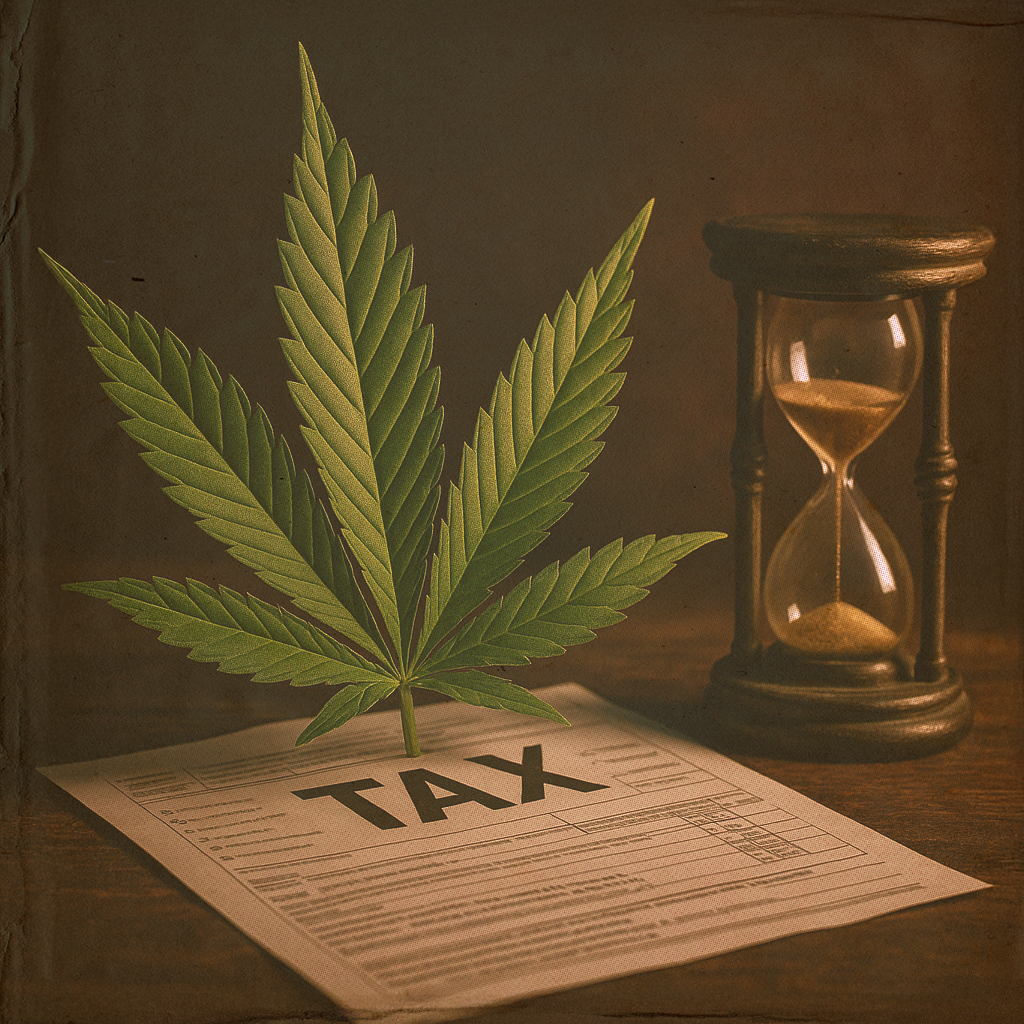California lawmakers have voted to freeze a cannabis tax hike, offering relief to the industry while raising questions about revenue and compliance.
When California lawmakers move unanimously on cannabis, people notice. That’s what happened this month when the state Assembly voted 57-0 to send Governor Gavin Newsom a bill that would freeze a planned marijuana excise tax hike for five years. The increase—from 15 percent to 19 percent—was scheduled to take effect in July, but if signed into law, the bill would push that jump off until at least October 2029.
Assemblymember Matt Haney, the Democrat carrying the measure, framed it as “immediate tax relief” for an industry still struggling to find its financial footing. Senate amendments added annual reporting requirements to keep an eye on the fiscal fallout, meaning state agencies will now be tasked with measuring what revenue might have been collected had the tax hike gone forward.
For a sector that has seen more businesses close than open in recent years, the pause signals an acknowledgment from lawmakers that the state’s cannabis market is too fragile to bear more financial weight.
Why the Tax Hike Pause Matters
The excise tax debate is not just about rates—it’s about survival. California legalized adult-use cannabis in 2016 with the promise of a robust regulated market, but high compliance costs, local bans, and stacked taxes have kept many consumers in the illicit market. A four-point tax increase risked making the problem worse, with legal operators warning that consumers would simply seek cheaper, untaxed cannabis.
Arizona operators know this tension well. While our state’s excise tax sits lower at 16 percent, patient and adult-use consumers still feel the pinch of overlapping taxes at checkout. GreenPharms and other local dispensaries have worked to balance affordability with regulatory compliance, something California’s industry has struggled to achieve at scale.
How We Got Here
The 15 percent excise tax was set to climb to 19 percent under a provision approved last year. The increase was pitched as a way to bolster state revenue, but industry leaders argued it came at the wrong time.
Haney introduced the bill in response to those concerns, drawing bipartisan backing almost immediately. By the time it reached the Assembly floor, opposition had evaporated—an unusual feat for cannabis legislation, which often attracts partisan fault lines.
Senate amendments ensured fiscal accountability. Under the bill, the Department of Tax and Fee Administration and the Department of Finance must issue annual reports showing both the revenue California collects under the freeze and what it would have received if the higher rate had taken effect.
What’s in the Bill
If signed, the bill will:
- Freeze the excise tax at 15 percent until October 2029.
- Require annual reporting to the Legislature on lost or gained revenue.
- Cap the potential future increase at 19 percent, with adjustments allowed after the five-year pause.
That reporting requirement is not trivial. State officials will now have to create complex fiscal models estimating consumer behavior in a counterfactual world—a challenge for any tax authority. The process will also provide advocates and lawmakers with rare hard data about how excise taxes influence consumer choice, industry compliance, and illicit market activity.
The Stakes for California’s Cannabis Market
Legal Operators
For businesses already struggling under the weight of compliance, licensing fees, and local restrictions, the freeze represents a reprieve. Operators hope to stabilize pricing, retain employees, and keep customers in the legal market.
State Revenue
The state could lose tens of millions in projected revenue each year. Whether those losses are offset by stronger compliance and more licensed transactions remains to be seen. California’s budget is already under strain, and cannabis revenue, while not the golden goose once imagined, remains politically significant.
The Illicit Market
Perhaps the most important variable is whether this freeze convinces more consumers to choose legal dispensaries over street dealers. If the price gap narrows, licensed businesses could claw back market share. If not, California risks continuing its trend of an underground market thriving in the shadows of legalization.
Politics of the Pause
Unanimous Assembly support is rare. It suggests lawmakers across the aisle recognize the fragility of California’s cannabis experiment.
Governor Newsom’s position will be decisive. He has historically supported the cannabis industry, seeing it as both an economic driver and a social equity project. Signing this bill would signal his willingness to prioritize market stability over short-term revenue.
The timing matters too. The bill takes effect in October if signed, aligning with the next fiscal cycle. If vetoed, the 19 percent rate could return quickly, leaving businesses scrambling once again.
Broader Lessons on Cannabis Tax Policy
California is not the first state to reconsider its tax structure, and it will not be the last. States like Oregon have resisted major tax hikes, keeping rates flat to ensure the legal market remains competitive. Others, like Washington, have layered additional taxes and watched the illicit market persist.
Arizona’s model offers a contrast. Our 16 percent excise tax has remained stable, giving operators predictability. The state’s market has flourished, with GreenPharms among those proving that consistency—paired with strong community ties—can sustain both patient and recreational sales. California’s turbulence shows what happens when the balance tips too far toward taxation without regard for market realities.
What Comes Next
All eyes are on Newsom. His signature would provide five years of breathing room, while also kicking the question of cannabis taxation down the road. In the meantime, the required reports could shape a national debate about how cannabis is taxed and whether high rates are self-defeating.
Industry advocates will push for more permanent relief, while budget hawks will monitor revenue shortfalls closely. Consumers, meanwhile, may simply watch their receipts to see if prices hold steady—or drift back toward the illicit market’s discount deals.
Conclusion
California’s move to pause its cannabis excise tax hike is more than a budget tweak. It is an admission that high taxes have consequences, especially in an industry still competing with its illicit twin. For Arizona operators and consumers, it is a reminder that tax stability matters as much as regulation in building a sustainable cannabis economy.
GreenPharms has seen firsthand how patients and adult-use consumers respond to pricing shifts. Relief at the register keeps people loyal to licensed dispensaries. California is learning that same lesson the hard way. Whether this five-year freeze buys enough time for its industry to stabilize will depend on whether the state treats the pause as a temporary reprieve—or a chance to rethink cannabis taxation altogether.
***
GreenPharms is more than just a dispensary. We are a family-owned and operated company that cultivates, processes, and sells high-quality cannabis products in Arizona. Whether you are looking for medical or recreational marijuana, we have something for everyone. From flower, edibles, concentrates, and topicals, to accessories, apparel, and education, we offer a wide range of marijuana strains, products and services to suit your needs and preferences. Our friendly and knowledgeable staff are always ready to assist you and answer any questions you may have. Visit our dispensaries in Mesa and Flagstaff, or shop online and get your order delivered to your door. At GreenPharms, we are cultivating a different kind of care.






